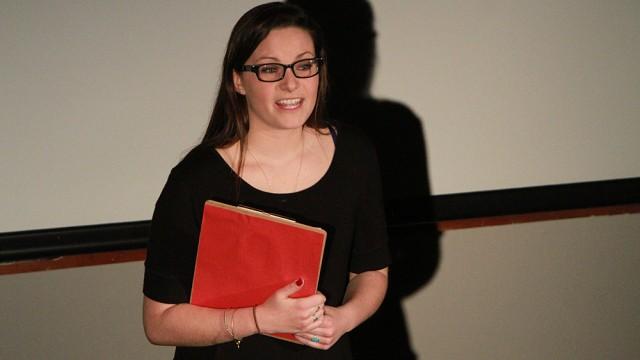
Eve Ensler’s The Vagina Monologues returned to Boston College for three sold out shows this past weekend. Staged by the Women’s Center, the play first came to Chestnut Hill in 2002, its narratives enduring on campus now for 13 years. The show unflinchingly tackles the female anatomy, and more importantly, issues that come with the female experience. The argument more recently presented is that the 20-year-old show has grown out of touch with today’s movement for women’s rights, addressing a piece of anatomy before the lived experiences of all women, including those in the trans community. Ensler has been accused of excluding certain facets of femininity, linking womanhood to the vagina.
This winter, Mount Holyoke College, an all-female liberal arts college in western Massachusetts, decided to end its run of The Vagina Monologues, arguing the very title of the show is outdated and exclusive of transwomen. Ensler responded in a January interview with Time, stating The Vagina Monologues was never intended to be a play about what it means to be a woman. It always has been a play about a specific type of oppression, Ensler said, and it never defined a woman as a person with a vagina.
In what she calls her “offering to the movement,” Ensler is examining what it’s like with a vagina, and with that, she makes no claim to speaking universally to the trials of women. Ensler is after agency over vaginas. To open up the initial monologues to the trans community, Ensler wrote an annual “spotlight” monologue in 2005 detailing the struggle of a trans girl. “They Beat the Girl Out of My Boy” was written from a transgendered perspective. The BC production took on the piece in its production for this year’s performances.
The piece features four characters shunned from a female identity and they were harassed into a the male identity. In part, this piece does exactly what the women of Mount Holyoke called for—an inclusion outside of the female anatomy. And while Ensler includes this important addition, the show as a whole is still nonexclusive of womanhood—which again, was never Ensler’s attention. In each new staging, as in BC’s staging, the show must be re-examined and widened to reflect the current feminist movement.
While the trans experience is an incredibly important discussion, and BC’s production of The Vagina Monologues should be acknowledged and applauded for its inclusion of the 2005 transgendered perspective, it also offers a broad message, as well. What should come out of this discussion is the need for BC students to support alternative performances like The Vagina Monologues—and it rightfully should not be the exact show every year.
The Mount Holyoke decision should be a reminder that even widely celebrated performances like The Vagina Monologues should be watched critically and with the knowledge that the show doesn’t represent all possible perspectives. Each year, The Vagina Monologues challenges the BC audience, reminding us of the many difficult issues women still face and offering a measuring stick of sorts for our own attitudes to the many issues women have been facing since its first draft in 1996. “The Dialogues After the Monologues” is a wonderful opportunity for BC students to openly discuss many of these issues that may come up from viewing the performance.
Featured Image by Heights Photo